Business
Fuel subsidy returns as crude oil nears $100 pbd, FX crisis deepens
Published
7 months agoon
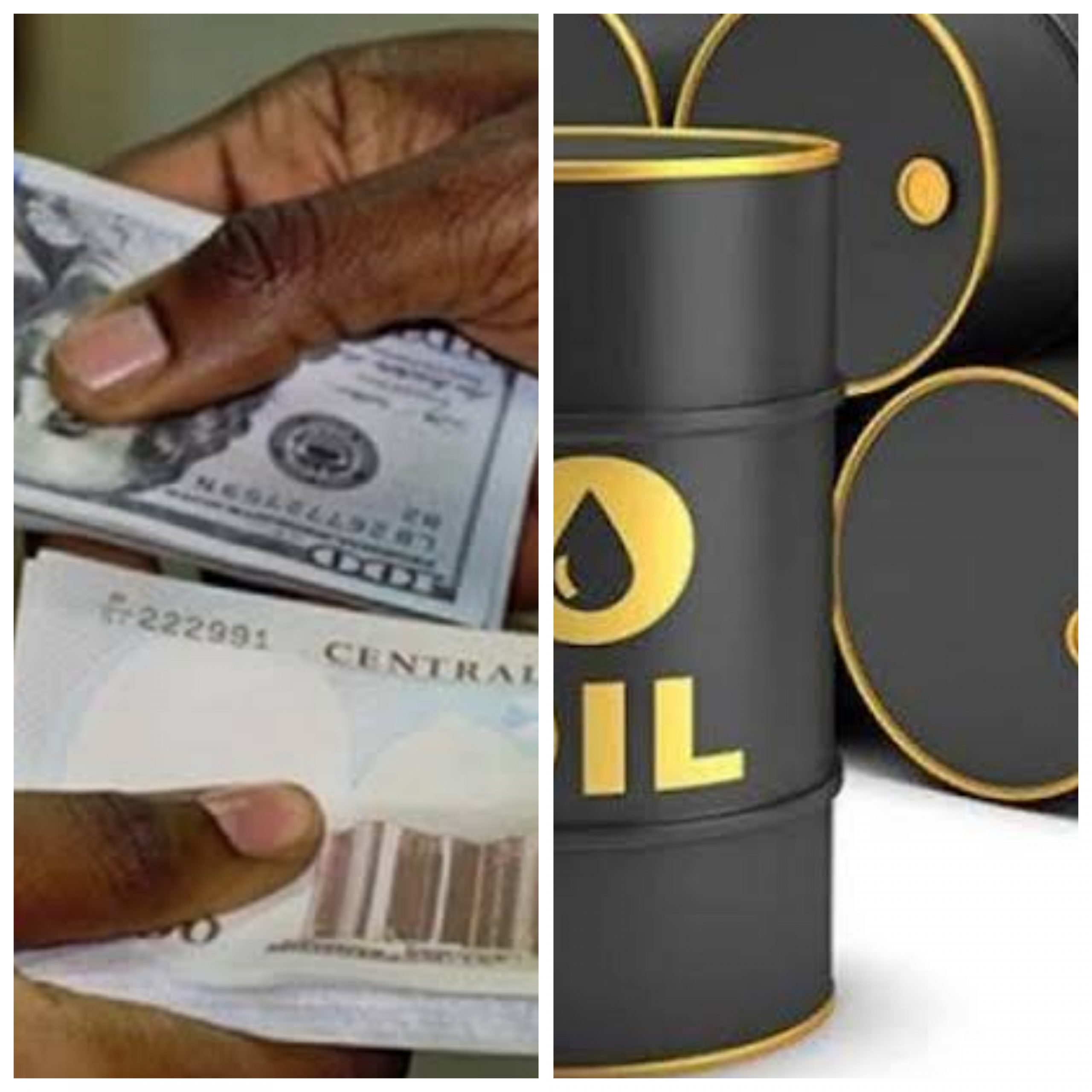
Findings by National Daily shows that the federal government paid N169.4bn as fuel subsidy in August to keep the pump price of petrol at N620 per litre.
Recall that President Tinubu, during his inaugural speech on May 29 announced the suspension of subsidy on fuel in order to ease pressure on government finances.
The decision forced marketers to increase pump price of the product from N168 per litre to over N500 per litre and later N620.
There have been several reports suggesting that the current price stagnation despite the worsening exchange rate and international crude price crossing $95 a barrel suggests a return of subsidy.
READ ALSO: Fuel subsidy removal has complicated business for oil marketers—IPMAN
A document by the Federal Account Allocation Committee (FAAC), sighted by our reporter yesterday, showed that in August 2023, the Nigerian Liquefied Natural Gas (NLNG) paid $275m as dividends to Nigeria via NNPC Limited. NNPC Limited used $220m (N169.4 billion at N770/$) out of the $275m to pay for the PMS subsidy. Then NNPC held back $55m, illegally.
According to oil and gas industry reports conducted by the Nigeria Extractive Industries Transparency Initiative (NEITI), the cost of petrol subsidy from 2015 to 2020 was N1.99 trillion.
Also reports by the Nigerian National Petroleum Corporation (NNPC) to the Federation Accounts Allocation Committee (FAAC), showed that petrol subsidy cost N1.57 trillion in 2021 alone and another N1.27 trillion from January to May 2022.
The government thereafter budgeted N3 trillion to cover petrol subsidy costs from June 2022 to June 2023.
An aggregation of the entire costs showed that under President Buhari the government spent N7.83 trillion on petrol subsidies.
Brent crude crossed the $95 per barrel threshold as the value of the naira versus the US dollar hit a record low at the black market creating greater doubt about Nigeria’s elimination of petrol subsidies.
READ ALSO: Fuel Subsidy: Jos DisCo push-up salaries as palliative
At the time this post was being written, U.S. West Texas Intermediate crude futures increased by more than 1% to $92.46 a barrel, while the international oil benchmark Brent crude futures crossed the $95 per barrel barrier.
The most recent increase in crude oil prices was expected to drive up the price of gasoline, but the FG’s decision to keep the energy product at N617/litre proved that the subsidy on Premium Motor Spirit had been quietly restored.
In addition to the rapid depreciation of the naira in Nigeria’s most accessible (black) FX market, the price cap on gasoline has made it difficult for marketers.
The exchange rate in July was N820/$ but now N920/$, indicating a 12.19 per cent increase. The crude oil price in July was $78.50 per barrel, it traded for $88.50 per barrel in the last week of August. Yesterday, it hit the $95 mark.
Also, while the price per litre at the international market in July was $0.641, it stood at $0.792 in the last week of August. This means that the landing cost of PMS stands at about N728.64 per litre compared to the N529 it was in July.
READ ALSO: Fuel subsidy reintroduced amid soaring prices of petrol
The addition of freight costs, lightering costs (STS), distribution margin, ancillary costs by the Nigerian Midstream Downstream Regulatory Authority (NMDPRA), Nigerian Port Authority (NPA) and Nigerian Maritime Administration and Safety Agency (NIMASA) as well as marketers’ margin stands at about N90 to N105.
MOMAN, which had regularly provided a pricing update, had suspended it. A source at the organisation said there is an instruction not to share the update because the government has said there would be no price increase.
National President, Natural Oil and Gas Suppliers Association of Nigeria (NOGASA), Benneth Korie, who had decried the prevailing development in the sector said, “Definitely the price of PMS will go up as much as the dollar price goes up. If you are exchanging $1 for N950, it will go up.”
Another expert, Dr Wisdom O. Mogbolu, said “I have said this repeatedly: we can’t think of removing subsidies without a functional refinery, without the stability of FX. For example, if the price of crude goes up, our petrol price must go up, now coupled with our volatile Fx, we must fix our system and not kill the masses.”
You may like
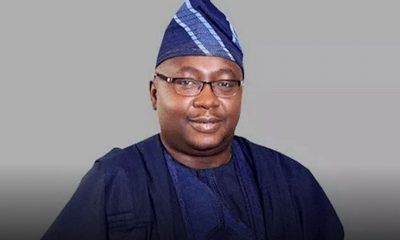

FG can’t continue to subsidize electricity — Minister of Power
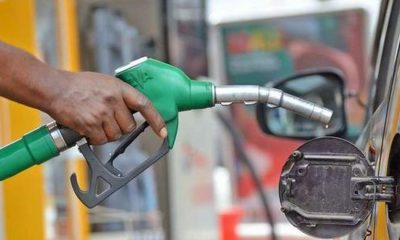

Fuel marketers increase pump price of petrol in Abuja
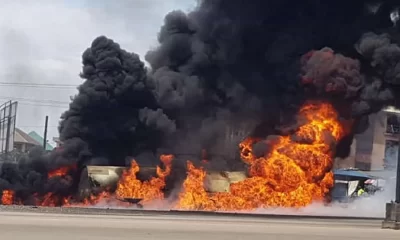

Panic as fuel tanker explodes in Lagos
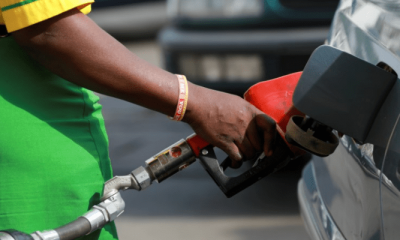

Petrol marketers fault processes of fuel subsidy removal
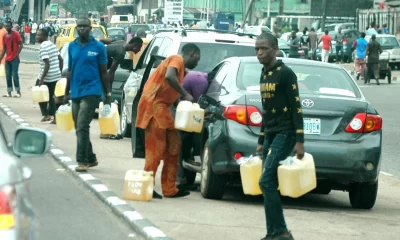

Fuel scarcity hits Abuja as black marketers sell at N1000/L
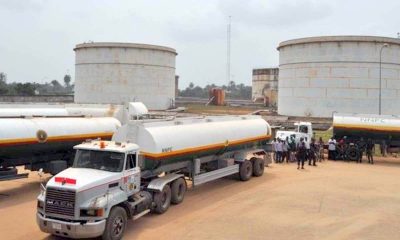

Fuel marketers warned of imminent fuel scarcity over hike in landing cost
Trending

 Health & Fitness4 days ago
Health & Fitness4 days agoMalaria Vaccines in Africa: Pastor Chris Oyakhilome and the BBC Attack

 Aviation7 days ago
Aviation7 days agoWhy some airlines are avoiding Nigeria’s airspace–NAMA

 Aviation5 days ago
Aviation5 days agoJust in: Dana airline crash lands in Lagos

 Aviation5 days ago
Aviation5 days agoNSIB begins investigation into Dana Air after crash-landing incident

 Aviation5 days ago
Aviation5 days agoJust In: Dana Air plane crash-lands in Lagos

 Aviation4 days ago
Aviation4 days agoJust in: FG suspends all Dana Air operations

 Featured2 days ago
Featured2 days agoGov, Abiodun appoints Chess master, Onakoya sports ambassador

 Crime2 days ago
Crime2 days agoVandalism: Osun water corporation appeals to residents

